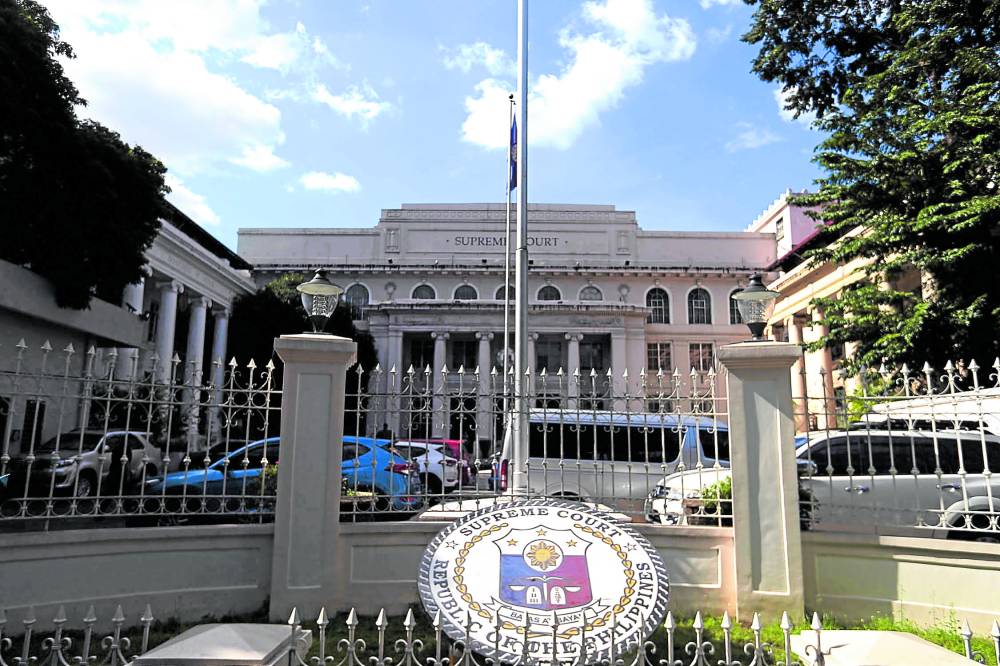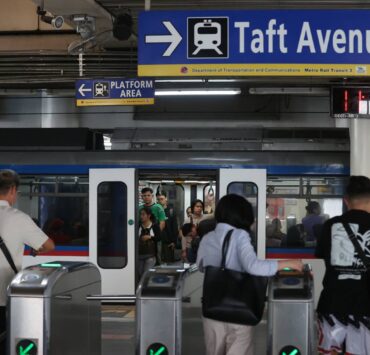Illegal structures on public lots may be torn down–SC

Unauthorized structures on public land, including videoke machines, “sari-sari” (retail) stores, billiard tables, “carenderias” (eateries) and other businesses on beaches, may be demolished for being public nuisances, the Supreme Court has ruled, as it dismissed the petition filed by a couple who operated informal structures on a beach in Batangas for over five decades.
In a decision promulgated on Jan. 14 and made public on Monday, the high court’s Second Division affirmed the ruling of the Court of Appeals (CA) that ordered the tearing down of various illegal structures on Matabungkay Beach in Lian, Batangas, that were built without permits from the Department of Environment and Natural Resources (DENR).
The case stemmed from a 2012 complaint filed by spouses Efren Gono and Rafaelita Gono, owners of Villa Alexandra Beach Resort and Restaurant in Matabungkay Beach, against spouses Pablo Calimlim and Patnubay Isla Calimlim for abatement of nuisance, easement and injunction.
Based on court records, the Calimlims operated informal structures and rest houses along the shore and provided video machines, videoke sets and billiard tables, along with sari-sari stores and eateries to tourists.
The Gonos, however, claimed the structures were built without the necessary permits and disrupted their business and inconvenienced guests, leading to financial losses. But in their defense, the Calimlims argued they had been using the land long before the resort was built and had no intention of disturbing anyone.
Lower court’s ruling
In 2020, the Regional Trial Court of Nasugbu, Batangas, dismissed the complaint after finding the Gonos were unable to prove that the structures owned by the Calimlims caused damage to their property or either intentional and unreasonable interference.
The loss of income suffered by the complainants, according to the lower court, could not be directly attributed to the Calimlims as there were so many competing businesses on Matabungkay Beach.
Three years later, the CA reversed and set aside the lower court’s decision and ordered the demolition of the illegal structures. The Calimlims were also told to vacate the premises around the beach in front of Villa Alexandra Beach Hotel and Restaurant.
The appellate court disagreed with the lower court’s decision that the nuisance subject of the complaint was a private nuisance.
Rather, it was a public nuisance premised on the admission of the Calimlims that they were occupying public property.
In its decision on G.R. No. 272053 penned by Associate Justice Amy Lazaro-Javier, the high court denied the petition for review of the Calimlims.
It cited Article 694 of the Civil Code, which provides a general definition of nuisance, which is any act, omission, establishment, business, or condition that harms people’s health or safety; annoys or offends the senses; or shocks or violates decency or morality; blocks public roads or waterways; or interferes with the use of property.
A nuisance is considered public when it affects a number of persons or interferes with a public right by directly encroaching on public property or causing a common injury.
No DENR permit
The high court cited the admission of the Calimlims that their application for a foreshore lease agreement was denied by the DENR.
“Thus, they have no authority to occupy, develop, utilize, or manage the foreshore land upon which their structures illegally stand. In fact, the DENR recognized this illegal occupancy of foreshore land and had consequently issued Notices to Vacate to spouses Calimlim who invariably ignored them,” the Supreme Court said, noting that the couple’s obstruction of and unauthorized occupation and use of the foreshore land equate to a public nuisance.
The high tribunal also pointed to the “hazardous manner” by which the Calimlims were running their business, noting its adverse effect on the Gonos and their guests who specifically complained about the couple’s obnoxious activities in the area.
“Unclean water from the toilet seeps into the dining area of Villa Alexandra and underground, contributing to the offensive odor affecting the quality of the air breathed in by spouses Gono, their guests, and other people in the area,” the Supreme Court said.
















